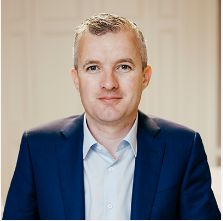By
DAN PENDER
The notion of a “social election”, and whether “GE16” is one of them, is regularly bandied about by pundits. Certainly, this is the first time that social media has played a major role in an Irish election campaign.
The PR360 #GE16 Social Tracker monitored the Twitter conversation for the duration of the election campaign and engagement has been strong. From the day the President dissolved the Dáil to the day of the final leaders’ debate on 23 February, there was an average of almost 90,000 election-related tweets from just over 31,000 people every week.
But how much of that data is simply a reflection of the increasing number of Irish people using social media? Compare the figures to 2011, the year of the last election. Today, 2.5 million Irish people use Facebook – an increase of 600,000. For Twitter, it’s 30% of the population, and that’s up from just 11%.
It seems only logical that election conversation would increase in parallel with the number of users. Indeed, it’s probable that by the next general election, the question of whether it is a “social” one won’t be asked at all.
The real unique power of social media is a by-product of it: analytics. Just as brands do with consumers, social media analytics lets parties and politicians get an accurate picture of their supporters and followers in real time, reducing them down into particular demographics, like gender, age and location. This information allows for far greater precision in communication.
“90,000 tweets from over 31,000 people each week during the #GE16 campaign”
Clearly it works to some degree: in the UK general election last year (2015), the Conservatives spent €1.5 million on Facebook advertisements, targeting messages at the non-political voter in marginal constituencies. The Conservatives went on to not only win many of these, but an outright parliamentary majority. No doubt their huge, carefully planned presence on the largest social network was a factor in this.
While social media is playing a significant role in the political communication arsenal, it’s not the super weapon. The value of personally engaging with a voter should never be understated. Ireland is a small country, and the “local” factor remains very important.
When it comes to social media and politics, like a business, it’s all a matter of knowing your target market. But, as more people adopt social media, particularly younger tech-savvy generations, parties and politicians stand to benefit massively from a properly developed social strategy, using a combination of advertisements and personal messages for the softer osmosis effect.

PR360’s Daily Social Tracker Infographics
![]()
![]()
![]()
![]()
![]()
![]()
![]()
![]()
![]()
![]()
![]()
![]()
![]()
![]()
![]()
DAN PENDER
Founder and Managing Director of PR360, Dan’s career spans business, politics and professional representation. He has overseen the agency’s rapid growth, developing a premier client portfolio and a talented team of professionals.

